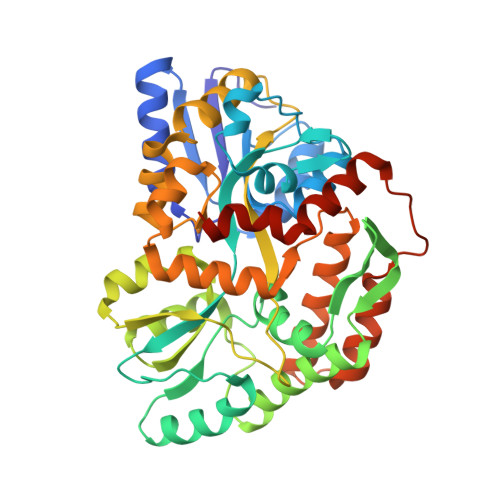Atomic structures of IAPP (amylin) fusions suggest a mechanism for fibrillation and the role of insulin in the process
Wiltzius, J.J., Sievers, S.A., Sawaya, M.R., Eisenberg, D.(2009) Protein Sci 18: 1521-1530
- PubMed: 19475663
- DOI: https://doi.org/10.1002/pro.145
- Primary Citation of Related Structures:
3G7V, 3G7W - PubMed Abstract:
Islet Amyloid Polypeptide (IAPP or amylin) is a peptide hormone produced and stored in the beta-islet cells of the pancreas along with insulin. IAPP readily forms amyloid fibrils in vitro, and the deposition of fibrillar IAPP has been correlated with the pathology of type II diabetes. The mechanism of the conversion that IAPP undergoes from soluble to fibrillar forms has been unclear. By chaperoning IAPP through fusion to maltose binding protein, we find that IAPP can adopt a alpha-helical structure at residues 8-18 and 22-27 and that molecules of IAPP dimerize. Mutational analysis suggests that this dimerization is on the pathway to fibrillation. The structure suggests how IAPP may heterodimerize with insulin, which we confirmed by protein crosslinking. Taken together, these experiments suggest the helical dimerization of IAPP accelerates fibril formation and that insulin impedes fibrillation by blocking the IAPP dimerization interface.
Organizational Affiliation:
Howard Hughes Medical Institute, UCLA-DOE Institute of Genomics and Proteomics, Los Angeles, California 90095-1570, USA.


















